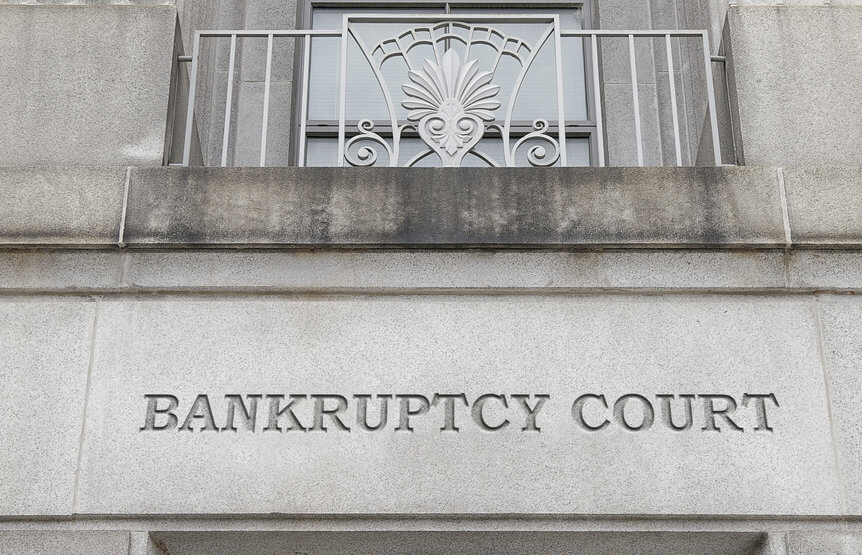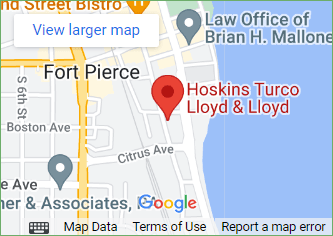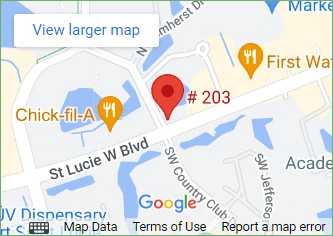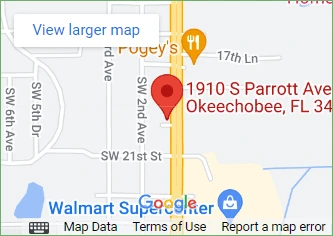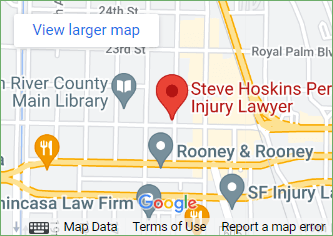Auto Accident Settlement
What court will handle my bankruptcy case?
All bankruptcy cases in the United States are handled at the federal level. This is intended to provide a consistent legal experience across the board, no matter where you are in the country.
Without the standardized federal rules and regulations surrounding how a bankruptcy proceeding may unfold, we would likely see each state engaging in different legal routines and tactics that would either incentivize or discourage individuals and businesses from filing bankruptcy in specific states. By keeping all bankruptcy cases at the federal level, there is generally a smaller chance that similar cases receive vastly different treatment.
While the consistency offered by the federal courts is useful for ensuring a fair bankruptcy system, it can be inconvenient for filers, given that most states only have one or two federal district courts. Fortunately for Florida residents, there are three in the sunshine state. Which specific court you should file with depends on your residential address, or in the case of business bankruptcy, the address of your business. Further below you will see information on which district court serves which Florida counties, but if you are still unsure or believe your situation may be unique, be sure to contact a Florida bankruptcy attorney to verify the court you will need to file with.
Bankruptcy Cases go Through the Federal Courts
State courts have no jurisdiction over matters related to bankruptcy cases, so be sure to familiarize yourself with the federal district courts in your state, or at least the ones that service your county.
Florida consists of three federal bankruptcy districts, each of which has one district court as well as one or more federal bankruptcy courts.
The Southern District contains the following counties: Broward, Dade, Highlands, Indian River, Martin, Monroe, Okeechobee, Palm Beach, and St. Lucie.
The Middle District contains the following counties: Baker, Bradford, Brevard, Charlotte, Citrus, Clay, Collier, Columbia, De Soto, Duval, Flagler, Glades, Hamilton, Hardee, Hendry, Hernando, Hillsborough, Lake, Lee, Manatee, Marion, Nassau, Orange, Osceola, Pasco, Pinellas, Polk, Putnam, St. Johns, Sarasota, Seminole, Sumter, Suwannee, Union, and Volusia.
The Northern District contains the following counties: Alachua, Bay, Calhoun, Dixie, Escambia, Franklin, Gadsden, Gilchrist, Gulf, Holmes, Jackson, Jefferson, Lafayette, Leon, Levy, Liberty, Madison, Okaloosa, Santa Rosa, Taylor, Wakulla, Walton, and Washington.
The US Court website also hosts a useful tool for finding the appropriate court for your case if you’re not a Florida resident or you want to verify the appropriate court for your purposes. You can search for the bankruptcy court that would hear your case by entering your home or business address and searching for district and bankruptcy courts in your area.
If you’re filing bankruptcy on behalf of a business you own or an organization you manage, the relevant district court may be different from the one that might serve your home address. Be sure to verify the appropriate court for your business address, and if you have any trouble confirming the correct court, a bankruptcy attorney in Florida can help you obtain the information you need.
How does a bankruptcy court differ from other courts?
Civil, criminal, and family court cases are heard at the state level except in unusual circumstances. Bankruptcy is always heard at the federal level. Reasons for this have already been mentioned, but there are some differences that you may want to be aware of if you’ve already had some experience in court at a state level.
One of the biggest differences is that unlike in some other court proceedings, there is not usually a clear winner or loser, and the proceedings are set up in such a way to avoid conflict and instead move towards a conclusion that works best for all parties involved.
By contrast, in a criminal case, you have verdicts of innocence and guilt. In civil cases, you have determinations on lawsuits that tend to clearly paint one party as responsible or not responsible for damages.
In bankruptcy cases, both sides are expected to come to the table to find a reasonable agreement in order to improve the situations of all those involved, perhaps more like some family court cases.
Should you be unhappy with the determination made by a bankruptcy court, the appeals process is also different from state and even other federal courts. The first level of appeal in a bankruptcy case goes through a federal trial court, rather than a specific appeals court. This is true unless your federal district has a Bankruptcy Appellate Panel, which was created to handle appeals instead of a trial court.
In the end, there are a lot of small differences between what you may be used to from standard court proceedings and the way bankruptcy cases are worked out. For these differences, and due to the serious and complicated nature of bankruptcy cases, the US government and bankruptcy courts strongly suggest anyone considering bankruptcy seek the assistance of a qualified attorney.
Get Legal Help With a Florida Bankruptcy
When you’re weighing the options on bankruptcy, the thought of seeking legal help can be another layer of difficulty when you’ve already got so many decisions to contend with. Bankruptcy and personal financial stresses tend to go hand-in-hand, so the idea of paying for an attorney in these trying times can seem impossible. In the long run, however, getting help from an experienced bankruptcy attorney can mean the difference between an agreement that’s fair and encourages your eventual recovery, and one that means you’ll be living with the consequences of a poorly structured bankruptcy for the foreseeable future.
The legal team at Hoskins, Turco, Lloyd & Lloyd have been helping Floridians in their bankruptcy cases for decades and we want to help you too. If you’re beginning to look into the bankruptcy process and could use some advice, call us at 866-460-1990 or contact us online to schedule a free consultation where we can discuss your financial situation and your options going forward.
Verdicts and Settlements
$1.2 Million
$1.6 Million
Wrongful Death Settlement
$11.1 Million
Settlement for motorcycle accident
Locations
Ft. Pierce, FL 34950
Suite 203, Port St. Lucie, FL 34986
Okeechobee, FL 34974
Vero Beach, FL 32960
The hiring of a lawyer is an important decision that should not be based solely upon advertisements. Before you decide, ask us to send you free written information about our qualifications and experience.
We are a debt relief agency and attorneys. We help people file for Bankruptcy relief under the Bankruptcy Code. The hiring of a lawyer is an important decision that should not be based solely upon advertisements. Before you decide, ask us to send you free information about our qualifications and experience.
Hoskins, Turco, Lloyd & Lloyd © 2020 All Rights Reserved. Terms of Use and Privacy Policy
This site is protected by reCAPTCHA and the Google Privacy Policy and Terms of Service apply.
